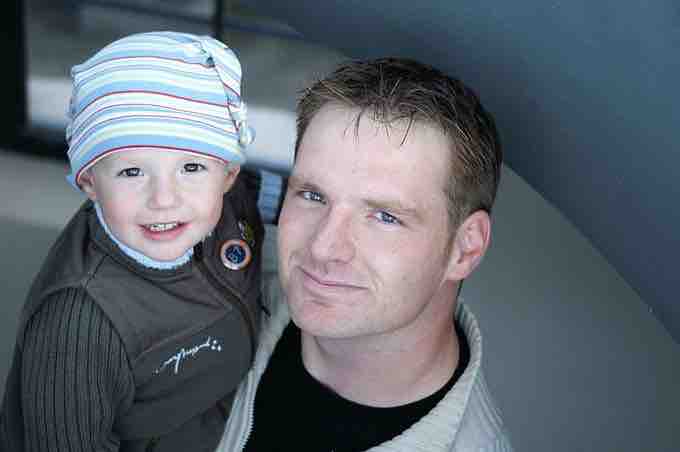A father is defined as a male parent or individual progenitor of human offspring. The adjective "paternal" refers to a father and comparatively to "maternal" for a mother. Traditionally, fathers act in a protective, supportive and responsible way toward their children. Involved fathers offer developmentally specific provisions to their sons and daughters throughout the life cycle, and are impacted themselves by doing so. According to the anthropologist Maurice Godelier, the parental role assumed by human males is a critical difference between human society and that of humans' closest biological relatives—chimpanzees and bonobos—who appear to be unaware of their "father" connection.
In many cultures, especially traditional Western, a father is usually the husband in a married couple. Many times, fathers have a very important role in raising offspring, and the title can be given to a non-biological father that fills this role. This is common in stepfathers, or males married to biological mothers. In East Asian and Western traditional families, fathers are the heads of the families, which means that their duties include providing financial support and making critical decisions, some of which must be obeyed without question by the rest of the family members.
The Father complex in psychology is a complex pertaining to a group of unconscious associations, or strong unconscious impulses, which specifically pertain to the image or archetype of the father. These impulses may be either positive or negative. Whereas the idea of the father complex had originally evolved to deal with the heavy Victorian patriarch, by the new millennium there had developed instead a postmodern preoccupation with the loss of paternal authority, or the absence of the father. Alongside the shift from a Freudian emphasis on the role of the father to object relations theory's stress upon the mother, psychoanalysis tended to single out the search for the father, and the negative effects of the switched-off father.

Father
Many fathers are married to the biological mothers of their children.